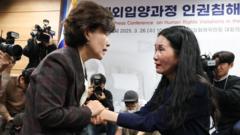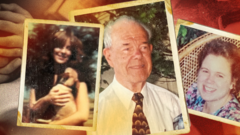Heartbreak of Separation: Greenlandic Families Battle for Their Children
Two Greenlandic families share their painful experiences of having their children taken away due to controversial parenting assessments in Denmark, prompting a critical review of social services practices.
When Keira's daughter was born last November, she was given only two hours with her before social services intervened. It felt like a part of my soul died, she recalls from her home in Denmark, where she is part of a growing number of Greenlandic families struggling to reunite with their children. After being assessed through the controversial FKUs—parental competency tests—screws of the state tightened over her access to her newborn.
Parents like Keira's and Johanne's bear testimony to the emotional turmoil inflicted by these assessments, alleged to be culturally biased and poorly administered. Critics argue that these tests assess parental capabilities based on Danish norms, disregarding the unique cultural contexts of Greenlandic families.
The assessments, often lengthy and complex, involve various tasks from cognitive recall to emotional testing, but many find them inadequate indicators of parenting capabilities. Critics, including parents, assert the FKUs fail to represent their cultural realities, creating a framework that predisposes Greenlandic parents to adverse outcomes.
Despite the government's commitment to reviewing 300 individual cases, many families remain in limbo, longing for reunification. Keira, fearing she may never hold her child again, rallies for reform while embracing hope that she feels will guide her through this painful journey.
As these stories unfold, they resonate strongly within the Greenlandic community, bringing to light the urgent need for discourse around equity in social services and the deeply personal cost of systematic injustice in parenting assessments.
This is part of the Global Women series from the BBC World Service, sharing untold and important stories from around the globe.





















